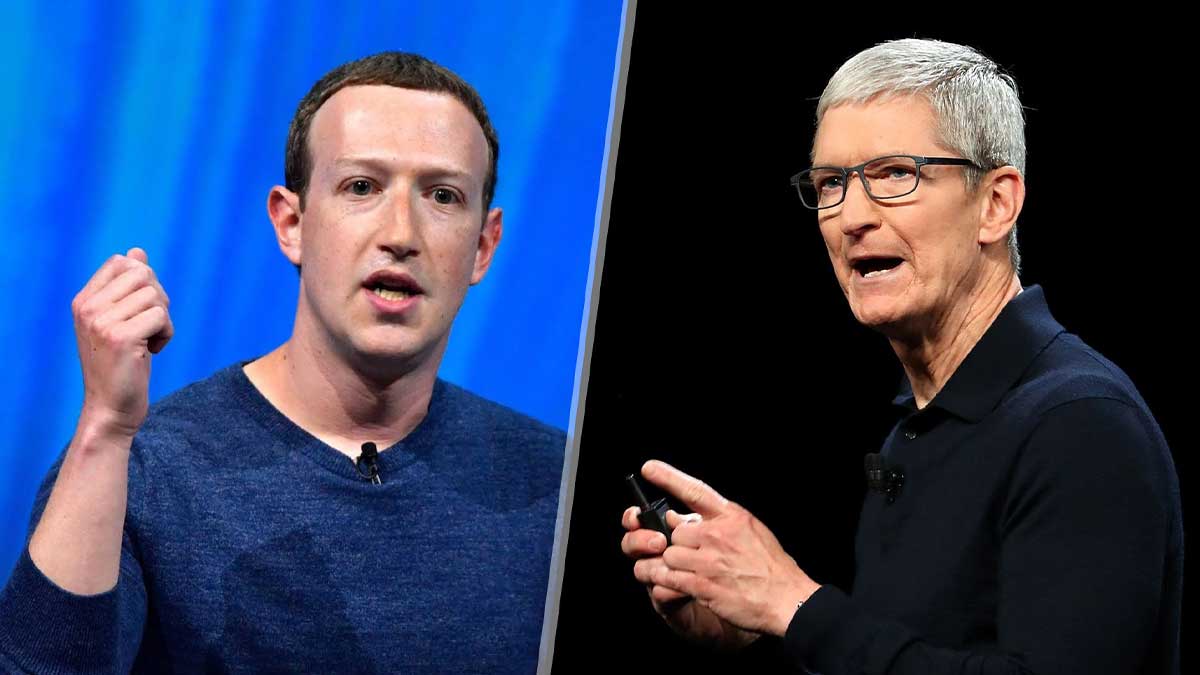The introduction of a new feature to iPhones and iPads has sparked a major feud between Apple and Facebook. It will give users the option of opting out of getting their data collected by apps.
This has thrown Facebook into disarray because user data – and the ads it can produce – is what keeps the business afloat. This change will have a significant impact on the company’s business model.
What’s it about?
The IDFA (identifier for advertisers), a specific device identifier found on every iPhone and iPad, is the highlight of the lines. This IDFA is used by companies that sell mobile ads, such as Facebook, to target ads and calculate their efficacy.
The IDFA can also be used in conjunction with other technologies, such as Facebook’s monitoring pixels or tracking cookies, to learn even more about you.
The new App Tracking Transparency function will be activated by default when iOS 14.5 is released. It will require app developers to ask users directly for permission to use IDFA.
Why is Apple doing this?
Apple is uninterested in the data of its users since it makes a lot of money from device sales and in-app purchases rather than ads. Furthermore, it has always positioned itself as a privacy-focused firm.
Steve Jobs, the co-founder of Apple, admitted in 2010 that some people didn’t care how much data they exchanged, but that they should still be told about how it was used.
“Privacy means people understand what they’re signing up for, in plain English, and over and over,” he said. “Ask them, ask them every time.”
More recently, current Apple CEO Tim Cook said, in what many interpreted as a possible reference to Facebook: “If a company is built on deceiving customers, exploiting their data, and offering options that aren’t really options, it doesn’t deserve our praise. It is in desperate need of restructuring.”
Apple has built privacy into its operating systems. Apple’s Safari browser also blocks third-party cookies by default, and last year it required iOS app developers to disclose what data they collect in their App Store listings.
Why Facebook isn’t pleased?
Facebook has cautioned that the app update might halve the amount of money earned across its ad network, with small businesses bearing the brunt of the effect.
It also claims that sharing data with advertisers is important for providing users with “better experiences.”
Facebook also claims that Apple is being deceptive by forcing companies to rely on subscriptions and other in-app purchases as a source of revenue, with Apple taking a cut.
Facebook has launched a public relations campaign, as it always does when under duress. In December, it ran advertisements in national newspapers highlighting small companies about how they only avoided the pandemic because of targeted ads.
Authorities concerned over user’s privacy
Policy makers have become deeply concerned in recent years about the size and complexity of the environment surrounding websites, applications, and social networking platforms.
Here are some things to think about:
- According to a study conducted by Apple, the typical app contains six third-party trackers that exists mainly to capture and share the online data.
- Some apps request access to more data than is needed to deliver their service. For example, England’s former children’s commissioner is suing TikTok for gathering vast quantities of data on children.
- The Information Commissioner’s Office in the United Kingdom is looking at real-time bidding, which involves the regular automated placement of billions of targeted online advertisements on websites and apps.
- According to research consultants, any one data broker may have data on up to 700 million customers.
Ad industry view point
Even without the iOS update, most people believe that progress is on the way.
Advertising agencies must “make preparations for the next, privacy-focused age of digital ads,” according to technology consultant Max Kalmykov.
This could include targeted advertising, such as fashion-related ads that appear only on fashion-related websites rather than following people across the web at random.
Another non-intrusive form of advertising, he said, would be ad placements on podcasts or with influencers.
Meanwhile, Apple claims to support the advertising industry and has released new free tools that enable marketers to determine the effectiveness of a campaign without exposing individual users’ identities.





















